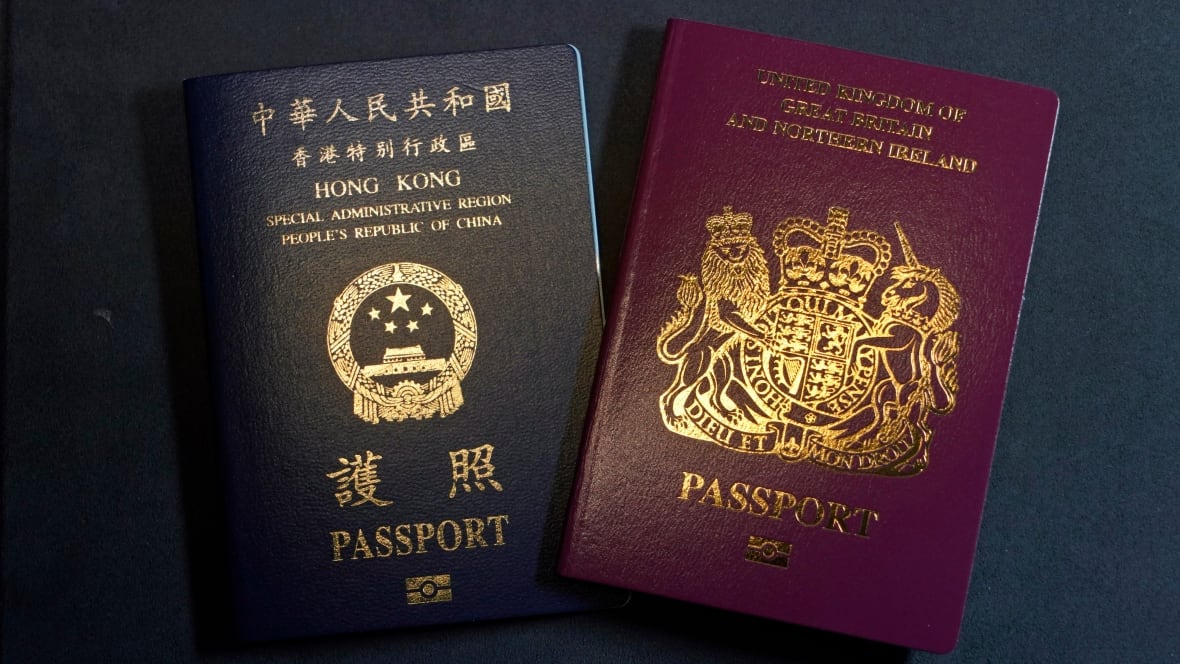World
Hong Kong Intensifies Crackdown on Overseas Activists with Passport Cancellations

Hong Kong authorities have escalated their crackdown on 16 overseas-based activists by cancelling their passports and banning financial support, a move aimed at those previously targeted under national security allegations. This action, announced on October 23, 2023, follows the issuance of arrest warrants in July for 19 individuals linked to a pro-democracy group that Hong Kong police describe as a subversive organization operating abroad.
The activists, who include prominent figures such as Victor Ho, Keung Ka-wai, Australian academic Chongyi Feng, and U.S. citizen Gong Sasha, are accused of endangering national security. The Hong Kong government explained in a statement that these measures are intended to prevent any financial resources from reaching the targeted individuals, thereby hindering their activities.
According to Secretary for Security Chris Tang, travel documents for 12 of the 16 activists who hold Hong Kong passports have been revoked. The government has also prohibited leasing properties or forming joint ventures with the individuals on the list. Violating these restrictions could result in penalties of up to seven years in prison.
The activists are currently residing in various countries, including the United Kingdom, the United States, Canada, Germany, Australia, Thailand, and Taiwan. The Hong Kong government accuses them of continuing to engage in actions that threaten national security and of inciting hatred against both Beijing and the local government through their statements and activities.
In July, Hong Kong police had already issued arrest warrants for the same group, which drew widespread condemnation from foreign governments, including the United States, United Kingdom, and the European Union. The police offered rewards ranging from 200,000 Hong Kong dollars (approximately $25,500 USD) to one million Hong Kong dollars (around $127,500 USD) for information leading to their arrests.
Beijing’s introduction of a national security law in June 2020 has significantly curtailed public dissent in Hong Kong, following large-scale protests in 2019. Many activists have faced arrest, intimidation, or have been forced into exile. The recent measures are being implemented under the provisions of Hong Kong’s national security law, which has faced criticism for limiting freedoms.
U.S. Secretary of State Marco Rubio condemned the targeting of Hong Kong activists abroad, describing it as a form of transnational repression. He emphasized that the United States would not tolerate Hong Kong’s efforts to impose its laws on those exercising their rights in other countries.
In response to international criticism, the Hong Kong office of the Chinese Foreign Affairs Ministry has defended the actions, asserting that they are legitimate and necessary for maintaining stability in the region. The governments in Beijing and Hong Kong maintain that the security laws are crucial for the protection of their national interests.
As the situation continues to evolve, the international community remains watchful, concerned about the implications for human rights and freedoms in Hong Kong and beyond.
-

 Politics4 weeks ago
Politics4 weeks agoSecwepemc First Nation Seeks Aboriginal Title Over Kamloops Area
-

 World5 months ago
World5 months agoScientists Unearth Ancient Antarctic Ice to Unlock Climate Secrets
-

 Entertainment5 months ago
Entertainment5 months agoTrump and McCormick to Announce $70 Billion Energy Investments
-

 Science5 months ago
Science5 months agoFour Astronauts Return to Earth After International Space Station Mission
-

 Lifestyle5 months ago
Lifestyle5 months agoTransLink Launches Food Truck Program to Boost Revenue in Vancouver
-

 Technology3 months ago
Technology3 months agoApple Notes Enhances Functionality with Markdown Support in macOS 26
-

 Lifestyle3 months ago
Lifestyle3 months agoManitoba’s Burger Champion Shines Again Amid Dining Innovations
-

 Top Stories2 months ago
Top Stories2 months agoUrgent Update: Fatal Crash on Highway 99 Claims Life of Pitt Meadows Man
-

 Politics4 months ago
Politics4 months agoUkrainian Tennis Star Elina Svitolina Faces Death Threats Online
-

 Sports5 months ago
Sports5 months agoSearch Underway for Missing Hunter Amid Hokkaido Bear Emergency
-

 Politics5 months ago
Politics5 months agoCarney Engages First Nations Leaders at Development Law Summit
-

 Technology5 months ago
Technology5 months agoFrosthaven Launches Early Access on July 31, 2025









